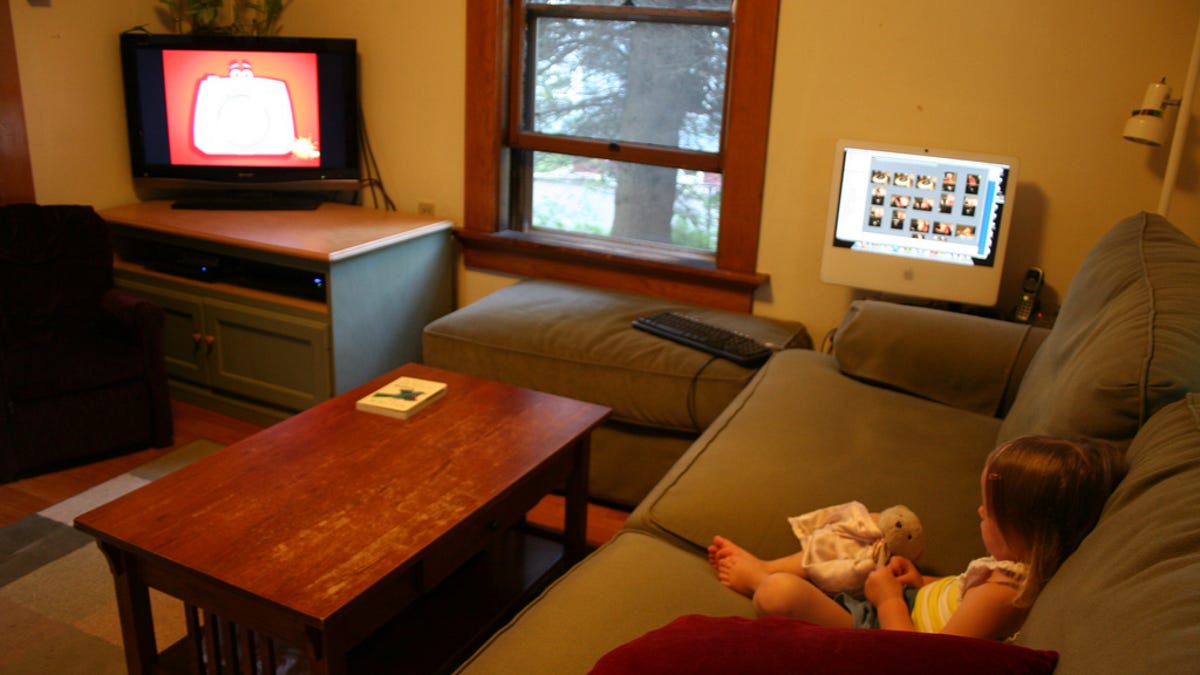Study: Preschoolers are overdosing on screen time
Researchers in Seattle find that, on average, children under 5 are exposed to four hours of screen time every weekday, twice the recommended daily limit.

The recommended maximum TV viewing for preschool-age children is two hours a day, according to the American Academy of Pediatrics.
So researchers at the Seattle Children's Research Institute and the University of Washington decided to see just how many kids adhere to that limit. They analyzed data from the Early Childhood Longitudinal Study--Birth Cohort, which includes information on more than 10,000 children born in 2001 with diverse socioeconomic and ethnic backgrounds.
The results, just published in the Journal of Pediatrics, are pretty damning.
First, screen time is defined as watching TV and movies. In this study, screen time did not include watching or playing video games or being on or in front of a computer at all, and because these children were only preschool-aged through 2006, it also leaves out any time spent on or watching cell phones. In other words, this data is already dated.
Of the 8,950 children the team studied, 66 percent exceeded the recommended limit of two hours. On average, children 5 and younger between 2001 and 2006 spent 4.1 hours in front of screens every weekday.
Before you blame child care centers, check the numbers. The highest screen exposure was among children in home-based childcare (5.6 hours). Children at center-based childcare watched almost half that (3.2 hours a day between home and child care), and children at federally-sponsored Head Start centers were in the middle, at 4.2 hours a day, with only 2 percent of that time (about five minutes) spent when the children are actually at the Head Start center.
"The biggest message from this study is that parents need to be aware of all the settings where their children are spending time," says lead author Dr. Pooja Tandon at the Seattle Children's Research Institute. "This study didn't look at outcomes for these children, but other studies have shown that increased screen time beyond one to two hours a day is associated with higher risks of various problems, so the fact that a national estimate shows that most children exceed that recommendation is concerning for all of those outcomes."
Few states regulate screen time in licensed child care settings, but since most of the screen time accumulates at home, Tandon says parents must also be more aware of how much screen time their children are exposed to.

